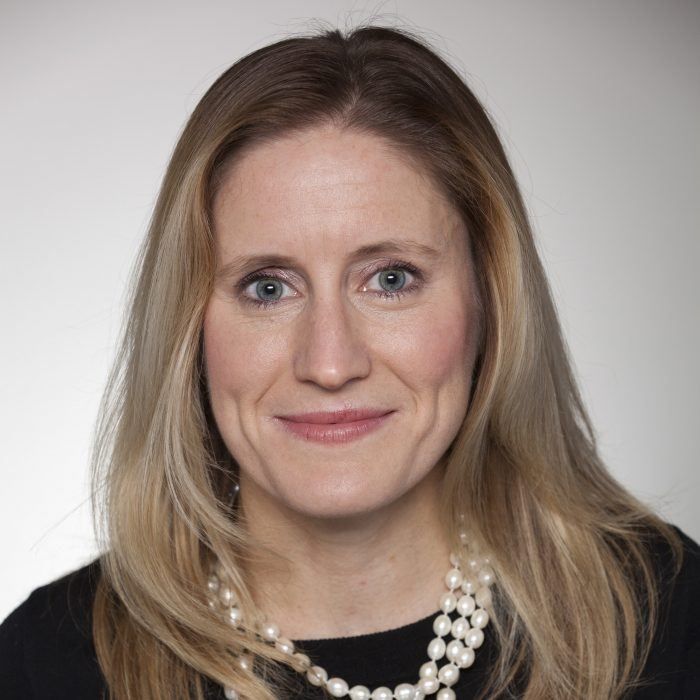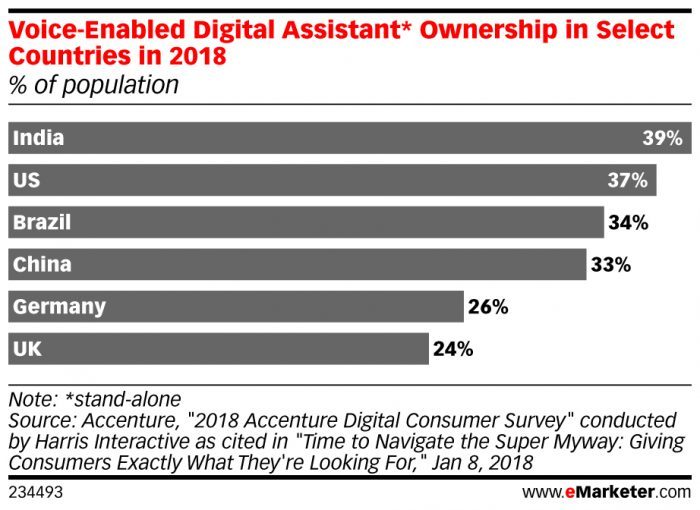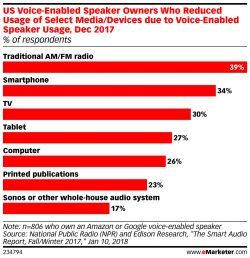Industry Insights
Voice Search Is Growing: Is Your Health System Keeping Up?
Voice assistants are leading a major change. According to eMarketer, nearly 40% of Americans have (and actually use) a voice-enabled digital assistant. That’s staggering. And it points to an obvious truth — behaviors will change. Soon, people won’t stop and consult a map on their phone to find a doctor. They certainly won’t open up […]

Carrie Liken
Feb 7, 2018

Voice assistants are leading a major change.
According to eMarketer, nearly 40% of Americans have (and actually use) a voice-enabled digital assistant. That's staggering. And it points to an obvious truth — behaviors will change. Soon, people won't stop and consult a map on their phone to find a doctor. They certainly won't open up a book to find a dentist. What they will do, in ever increasing numbers, is state their request out loud.

People are increasingly using voice-enabled systems to perform familiar requests — ones they previously performed on traditional devices.

How does this affect the consumer experience?
"Hey Google… Find me a doctor within seven miles that takes my insurance and has an appointment open this week."
To the average patient, this seems like an entirely reasonable request to make of a digital assistant. But the fact is, when you pose this question to Google today, the response is, "Sorry, I can't help with that…"
Regardless of how smart intelligent assistants become, they need data — data from trusted sources. This lack of data is usually the result of failure points such as:
-
No cohesive data integration (simply put, having too many systems which don't talk to each other)
-
Failing to predict consumer trends when planning for the next year
-
Having no one focused on translating those trends into internal action plans
There are three categories that health systems and care providers tend to fall into as it pertains to adopting new technology:
- Technology Averse: These folks are not doing anything, and ignore the fact that patients are exploring new ways of seeking medical expertise.
- Technology Timid: People in this group are tip-toeing in. They're in exploration mode, trying to see where the lines are and how close they can get.
- Early Adopters: These are the health systems willing to push the boundaries. They are the first to test out new technology, like Amazon Alexa, and meet the patient on the patient's terms. Vanderbilt Health is among one of the first healthcare providers in this third category.
As a healthcare provider, joining ranks with this third category will help you form new connections with patients. In our next post, we'll go over a few steps you can take today to get your organization ready for this voice-enabled future.
